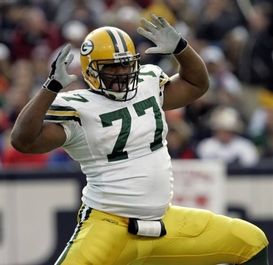Postseason: not about the money
Amidst the upheaval – or lack thereof in certain places around the league – there are a couple of areas of interest to clear up about playoff pay, coaching contract offsets and dozens of new players being signed.
Playoff pay
Now that the regular season has ended, so have the contractual obligations of NFL teams to its players (except for the payout of earned incentive clauses). The playoffs are NFL events -- the money paid to players is league money, not team money. Logistically, the NFL deposits money in the team’s account for how far its team advanced in the playoffs and the team then writes the checks.
Thus, a player’s salary is irrelevant to what he makes in the playoffs. As an example, the Saints’ Drew Brees, playing on a nearly $7.4 million salary this season, earned roughly $435,000 per game for the season. For this weekend’s playoff game against the Lions, however, he will take a $413,000 pay cut for the week and make $22,000, the same as every other player on the Saints.
Let’s look at the cumulative postseason pay for the 2011-2012 season playoffs:
Wild Card
Division Winners (Broncos, Texans, Giants, Saints): $22,000
Wild Cards (Steelers, Bengals, Falcons, Lions): $20,000
Divisional Playoff Game $22,000
Conference Championship $40,000
Super Bowl
(Winning Team) $88,000
(Losing Team) $44,000
Players on teams receiving byes this weekend (Packers, 49ers, Patriots, Ravens) technically do not get paid for this week of the playoffs. Their bye week gives them rest and home field, although it will cost them an additional $22,000.
Thus, the maximum a player could receive for winning the Super Bowl this year would be $172,000. The maximum that players from the teams receiving byes this week can receive for winning the Super Bowl is $150,000.
For many of the NFL’s impact players, the postseason games represent a dramatic pay cut. Whenever a player says "It's not about the money," it usually means: "It's all about the money!" For these few weeks, however, it may ring true.
Coach contracts
Coaches with remaining time on their contracts are paid through the end of their deals. Unlike most player contracts they are, in effect, “guaranteed” with the remaining amounts due and payable.
The key language is the “offset": reducing the firing team's obligation by the amount the coach receives from a new team.
For example, let’s say a coach was fired with $3 million remaining on his deal for 2012. Were he then to hook on with another team for a salary of $1 million for next season, the original club would have its financial obligation reduced to $2 million.
These offset clauses can create some sticky situations. First, a coach is required to use “due diligence” to obtain another position, something hard to prove and/or enforce when a coach prefers to wait for a better offer or not work at all rather than taking what he may consider an undesirable opportunity.
The other issue involves teams saving money by hiring fired coaches. Knowing these coaches are going to be paid one way or another, teams may try to pay coaches below market salary while the former team pays the balance. And the fired coach is usually only too willing to agree, sticking it to the team that has just fired him.
The NFL office has had to intervene on different occasions, mandating that the new team pay the coach commensurate with his experience and qualifications. The NFL is a very small world; teams that use these tactics get reputations fast. What goes around comes around.
The Futures
 Jenkins was signed by the Packers as a reserve/future player one January.
Jenkins was signed by the Packers as a reserve/future player one January.
NFL teams are now signing dozens of players to "reserve/future" contracts to round out their 2012 rosters. These deals -- the vast majority of them without signing bonuses and for minimum salaries -- do not technically activate until the 2012 League Year, set to begin on March 13. Thus, the players will be in a reserve category until that time.
Many of these reserve/future signings are players that were on practice squads for the 2011 season and will sign with the team for which they were on the practice squad. Some, though, will jump to another team for a perceived better opportunity.
Like undrafted free agents, teams can uncover some true gems in this category of players. At the Packers, we signed Cullen Jenkins one January as a reserve/future player. Jenkins went on to be a highly productive player for the Packers and now the Eagles.
Much more to come on as the NFL offseason – the in-season for the business of football – begins.
Follow me on Twitter at adbrandt.